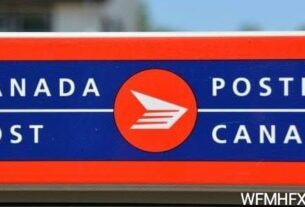**** HRP Media Release
Fraud prevention tips via HRP
The best way to reduce fraud is to:
- take steps to safeguard your personal information and money
- learn how to recognize it so you don’t fall for a scam
- report it:
- notify your bank immediately if the fraud involves your bank account or credit card
- call police at 902.490.5016 if you’ve lost money or your identity has been compromised. You can report a scam where you haven’t been a victim to the Canadian Anti-Fraud Centre, or through the RCMP’s online reporting system or call 1.888.495.8501.
Prevention Tips
Identity theft
- be wary of any unsolicited e-mail, telephone calls or mail attempting to obtain personal or financial information from you
- shred your personal/financial documents before disposing of them
- don’t carry all of your identity documents in your purse or wallet. Remove those you don’t really need and keep them in a safe place
- limit the amount of personal information you share on social media sites:
- don’t share details like your phone number, home address, email address or where you work
- privatize your settings so you control who sees your information. Consider setting them to friends only and be cautious about who you allow into your circle of friends. Check your settings at least once a week. Social media sites like Facebook update their security settings often, sometimes without warning.
Internet scams
- install antivirus
- software on your computer and/or mobile device and keep it up-to-date
- check the legitimacy of emails, websites, online sellers and auction sites before taking any action
- don’t click on links or attachments contained in unsolicited e-mail or text messages
- don’t reply spam e-mail or text messages, even to unsubscribe
- use your pop up-blocker
- download files only from sites you know and trust
- only purchase software and apps from reputable stores and dealers to avoid installing malicious software onto your device
- be cautious using free WiFi. When making purchases or doing your banking wirelessly, make sure you are using a secure WiFi connection
- only shop online at secure sites. You can tell if a site is secure by the URL. A secure web site starts with https:// instead of http:// and secure sites should also have a small lock icon in front of the URL
- if you choose to shop online or participate in online auctions, make sure you know about refund policies and dispute-handling processes, and be careful that you are not overcharged
- when shopping online, you may want to consider using an online escrow service. This service will hold your payment and only release it to the seller once you have confirmed that you received what you paid for
Debit and credit card fraud
- remember to sign the back of your debit and credit cards when you receive them
- protect your PIN when making a purchase or using a banking machine. Cover the keypad with one hand and enter your information with the other. Shield the keypad with your body by hovering over top
- make sure your PIN cannot be easily guessed if your debit card is lost or stolen
- protect your PIN. Don’t write it down – memorize it. Change it periodically
- never disclose your PIN to anyone. No one from a legitimate financial institution, police service, or business should ask for your PIN
- if anything seems unusual about the ABM or point of sale terminal, don’t use it – report the situation to police and the merchant
- carefully review your bank and credit card statements. Report any irregularities to your bank immediately
- check your credit report at least once per year with Canada’s two major credit-reporting agencies:
- if your card is lost, stolen, or retained by an ABM, notify your financial institution immediately. You should also contact Equifax and TransUnion to request that your credit report be flagged to indicate that your card has missing
Common scams
Phishing/smishing:
You receive a seemingly legitimate e-mail or text, often claiming to be from your bank. The message will ask you for your personal information or contain a link to a website where you can update or confirm your information. A legitimate bank or financial institution will never ask you to click on a link in an email or send your account details through an email or website.
Malicious software:
Scammers try to install software on your computer so that they can gain access to files, personal information and passwords. They may trick you into clicking on a link or pop-up message in a spam e-mail or text, or get you to visit a fake website set up solely to infect people’s computers.
Fake websites:
Scammers can easily copy the logo or even the entire website of a genuine organization. Check the URL to ensure it is spelt correctly and hasn’t changed to a slightly different spelling, perhaps with additional letters or with the letters swapped around. Within banking and e-commerce sites, the URL should change to “https://” from “http://” ( ‘s’ stands for secure) when you reach the payment point or the point where you are asked to type in passwords and usernames.
Lottery/contest scams:
You receive a phone call, an email, a text message or see a pop-up screen on your computer advising that you have won a lottery or a contest. The catch is that there are often costs involved with claiming your prize, and even if you do receive a prize, it may not be what was promised to you.
Job and employment scams:
You’re promised a lot of income for little or no effort. You may be asked to use your bank account to receive and pass on payments for a foreign company, or your ‘employer’” might send you a counterfeit cheque along with instructions for you to cash it and transfer a portion of the sum over a money transfer service. Sometimes the job offer involves the payment of an up-front fee for start-up materials or software.
Romance scams:
Scammers develop a relationship with their victim, sometimes over an extended period of time. They use a number of different approaches but the most common include asking the victim to cash a cheque for them, requesting the victim’s financial assistance with an ‘emergency,’ or promising to meet the victim in person if they provide money for travel expenses.
Emergency scams:
You receive a call from someone posing as a family member or friend who is in trouble and needs money immediately – they claim to have been in a car accident, are having trouble returning from a foreign country or they need bail money, etc. They don’t want to you to tell anyone else what has happened and ask you to wire money through a money transfer company.
Charity scams:
Scammers pretend to be a real charity or pose as a canvasser for a legitimate charity. Often, the scammer will exploit a natural disaster or tragedy that has recently been in the news. When in doubt, check with the charity, the Canada Revenue Agency or your local Better Business Bureau before donating.
Canada Revenue Agency (CRA) scam:
You received a call or email from someone who claims to be from the Canada Revenue Agency. The scammer may ask for personal information such as a social insurance number, credit card number, bank account number to process a refund or benefit payment, or they use threatening or coercive language to scare you into paying fictitious debt to the CRA. In some cases, the email or call directs you to a fake CRA website where you are then asked to verify your identity by entering personal information.
Visit the Canadian Anti-Fraud Centre for more information on frauds and fraud prevention.




